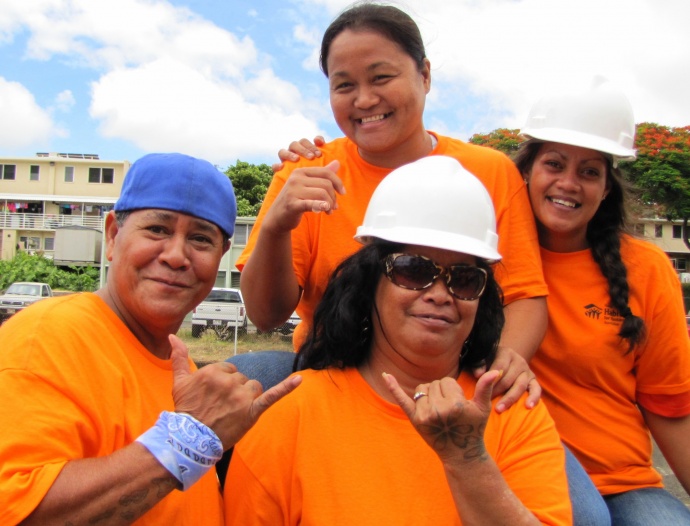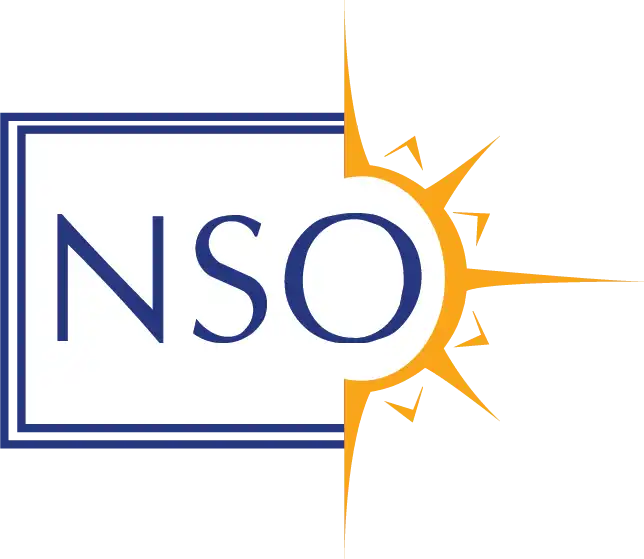OHA Grant Funds Homeowner Education on Maui
Habitat for Humanity Maui has been awarded a $120,000 grant from the Office of Hawaiian Affairs to assist with its efforts in increasing financial literacy and homeowner education.
Organization leaders say Habitat and OHA feel that financial literacy leads to long-term economic self-sufficiency and successful homeownership.

Habitat for Humanity Maui.
Habitat for Humanity Maui will be using the grant to fund free financial literacy and homeownership classes to Native Hawaiians. These classes help individuals and families prepare themselves for homeownership and are a requirement for every family applying for assistance with Habitat.
“We’re grateful that this grant allows us to increase our impact in the Maui and Lānaʻi community,” said Sherri K. Dodson, Executive Director. “Our work is vital to helping families achieve strength, stability and self-reliance through shelter.”
Habitat for Humanity Maui was incorporated in 1996 and officially became an affiliate of Habitat for Humanity International in 1997. To date, Habitat has built and renovated over 100 houses on Maui, Molokaʻi and Lānaʻi, providing homes for over 500 people in our local community. Their mission is to build decent housing and to renovate substandard housing on Maui in partnership with community volunteers and potential homeowners so that homelessness and substandard housing on Maui is eliminated.
The funds were part of a larger $6 million appropriation over the next two fiscal years that will go toward 23 programs and organizations that benefit the Native Hawaiian community.
“We understand that of the many services we provide to our beneficiaries – including research, advocacy and managing our lands – these community grants are especially critical because they make a difference in the lives of individual Native Hawaiians and communities that need kōkua the most,” said OHA Chief Executive Officer/Ka Pouhana Kamanaʻopono Crabbe.
A complete list of the Fiscal Biennium 2018-2019 OHA community grant awardees are as follows:
Housing
Hawaiian Community Assets, $470,000
To provide culturally-relevant, place-based financial literacy education, HUD-certified housing counseling and asset building products to low- and moderate-income Native Hawaiians to improve their capacity to own or rent homes.
Effective Parenting and Innovative Communication Inc., $92,000
To provide financial literacy training and matching funds for asset purchases for young people ages 14 through 25 who were in foster care. Eligible asset purchases for Native Hawaiians include obtaining stable rental housing (security deposit/first month’s rent).
Habitat for Humanity Maui, $120,000
To educate the Native Hawaiian populations on Maui and Lānaʻi in effective financial literacy strategies with the goals of long-term economic self-sufficiency and successful homeownership.
Nānākuli Housing Corporation, $318,000
To provide financial and homeownership trainings to Native Hawaiian households with low to moderate income to increase their economic self-sufficiency
Income
Goodwill Industries of Hawaiʻi, Inc., $720,000
To provide education and training and career support services, in partnership with University of Hawaiʻi Community Colleges, to eligible Native Hawaiians to improve their ability to obtain higher-wage employment, thereby increasing their economic self-sufficiency.
Young Women’s Christian Association of Oʻahu, $280,000
To help Native Hawaiian ex-offenders and other low-income women establish economic security by providing experiential and learning opportunities related to employment, financial literacy and work/life balance.
Health
Kualapuʻu Public Conversion Charter School, $267,849
The project empowers students and families to improve their overall health to address the disproportionate burden of overweight, obesity and associated negative health outcomes. The evidence-based approach builds on the success of a two-year pilot project in engaging students and families to increase physical activity and nutrition knowledge.
Mālama Kauaʻi, $170,000
The project will deliver a nutritious, consistent and culturally-relevant school meal program and strengthen health-related education within two Hawaiian public charter schools to improve the health and lifestyle choices of students and families.
The Salvation Army-Family Treatment Services, $180,000
The project aims to improve the health of Hawaiian women recovering from substance abuse and addiction and prevent obesity and reduce weight gain related to cessation of tobacco, methamphetamine and other drugs, by engaging women in Hawaiian cultural practices that support health and by providing information and skills to live a healthy lifestyle.
The Queen’s Medical Center, $382,151
The purpose of this project is to implement a culturally-relevant, community-based program based on direct (physical activity, clinical assessment) and prevention services (education, research) to reduce the rate and severity of obesity among Native Hawaiians, to improve well-being and reduce the burden of cardiovascular risk factors.
Education
After-School All-Stars Hawaiʻi, $490,810
The purpose of this project is to provide comprehensive after-school programs in five Title I middle schools to improve Native Hawaiian student proficiency in reading and math.
Boys & Girls Club of the Big Island, $250,638
The Mohala ʻIke Project will strengthen academic success for Native Hawaiian and other club members by skillfully instilling lifelong learning habits in the youth of five Boys & Girls Club of the Big Island communities (Hilo, Keaʻau, Pāhoa, Pāhala, Kealakehe) through culturally responsive, experiential academic support delivered by caring club mentors.
Educational Services Hawaiʻi Foundation, $258,552
The project provides comprehensive instruction utilizing culture-based pedagogy, combined with a variety of educationally enriching activities, designed to increase the number of Native Hawaiian students in foster, kith, and kinship care, to meet and exceed reading and math standards, to achieve yearly grade promotion, and to graduate.
Culture
Awaiaulu, $353,600
To train translators with a skill set for the future generations of Hawaiʻi and to translate an important historical narrative resource. This project builds on cultural and historical resources and provides cultural grounding with historical illumination in many fields.
Hui Mālama O Ke Kai Foundation, $133,638
To perpetuate Hawaiian cultural practices and educational methods while strengthening bonds within and between ʻohana for Hawaiians in the Waimānalo community and to contribute to the vision of “a board and stone in every home” and “a waʻa for every family”.
Kōkua Kalihi Valley Comprehensive Family Services, $189,720
To increase and perpetuate traditional knowledge and cultural practices around childbirth, Native Hawaiian wāhine hāpai and their kāne, cultural practitioners, and health professionals will learn cultural birthing practices, empowering families to give their child a strong foundation in life while strengthening the Lāhui.
KUPA Friends of Hoʻokena Beach Park, $97,741
To preserve and perpetuate the customary Hawaiian cultural practices of traditional ʻōpelu fishing as handed down to the fishermen of Hoʻokena and the greater South Kona region by reintroducing seasonal closures to allow time for regeneration of fish stocks and increased fish catch and to train a new generation of ʻōpelu fishers.
PAC Foundation, $73,810
To increase the number of cultural practitioners in the area of ʻieʻie basketry by providing cultural-based experiences through lectures, resource gathering, workshops, and promoting opportunities for the Hawaiian community to connect with their heritage.
PAʻI Foundation, $178,532
To perpetuate hula by providing instruction and creative spaces to Native Hawaiian kumu hula and hālau hula to continue to share and teach hula, to increase the number of Native Hawaiian ʻōlapa, hoʻopaʻa, and kumu hula, and to develop access to and interest in hula for future generations of Native Hawaiians to ensure these practices continue.
Land
Hālau Keʻalaokamaile, $240,697
To plant and maintain a six-acre native habitat kīpuka, for use by Native Hawaiian cultural practitioners and their students, which restores native flora and fauna, enhances the watershed, perpetuates cultural practices, and creates a template for sustainable restoration.
Hawaiʻi Forest Institute, $172,262
To tend, honor and grow a place of peace and safety for the native dryland lama forest of Kaʻūpūlehu, within a regional homeland context, fostering restorative kinship relationships between community and ʻāina, utilizing educational stewardship, traditional ecological knowledge, contemporary and institutional scientific methods.
Ka Honua Momona International, $500,000
A collaboration between Ka Honua Momona of Molokaʻi and Waipā Foundation of Kauaʻi to grow environmental resources, cultural practices and financial sustainability, ultimately ensuring abundance for Native Hawaiians and future generations.
Pacific American Foundation, $60,000
To restore, revitalize, and preserve the Waikalua Loko Fishpond; to inspire, educate, and practice the art and engineering of Hawaiian fishponds as a catalyst to restoring Kāneʻohe Bay and the near shore fisheries environment; and to help re-connect the ma uka to ma kai in the ahupuaʻa of Kāneʻohe.









